China ups security for birthday extravaganza
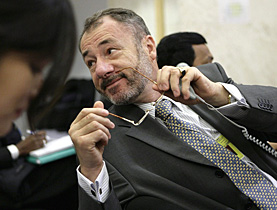
Security is high in Beijing as China prepares for lavish celebrations to mark the 60th anniversary of the founding of the People's Republic of China on Thursday.
Swiss ambassador to China Blaise Godet tells swissinfo.ch that the Chinese are determined nothing should mar the occasion. He says that despite the country’s “extraordinary economic and social progress” in the past 30 years some groups have been left behind.
China was declared a people’s republic on October 1, 1949 by Communist Party Chairman Mao Zedong. The anniversary festivities will include a military parade and fireworks.
In the run up to the celebrations, many tourist spots and restaurants have been closed and armed riot police have taken up position on the parade route. There will be no flights into and out of Beijing during the three hours of the parade. Some Swiss nationals have been refused visas for security reasons.
During his 35-year diplomatic career Godet has served in South Asia, the Middle East and as head of the Swiss permanent mission to the United Nations.
swissinfo.ch: Given this security presence, is China still a long way from becoming the “harmonious society” its leaders dream of?
Blaise Godet: I can’t deny that ahead of October 1 there’s a certain nervousness about security, which even the Chinese themselves sometimes complain about. Why are they nervous? Obviously, they would like this important parade and all these festivities marking the 60th anniversary to go smoothly. We have had various incidents recently – think Tibet, think Xinjiang – so it is obvious that the Chinese do not want the celebrations marred by any security incident.
It is clear that these last 60 years – or rather I should say the last 30 years – have led to extraordinary economic and social progress, but some groups of the population have been left behind. There is a growing gap between the rich and the poor, although I still think we can say that the material situation of those who haven’t done so well is nevertheless gradually improving.
swissinfo.ch: Do you remember what your idea of China was when you were little boy? How does the China of today differ from its image 20, 30 or 40 years ago?
B.G.: Like everyone else, I read Jules Verne and The Tribulations of a Chinaman in China. That probably summed up China for me. It was time of the Cold War and China was seen as being like the Soviet Union.
Now I would say we look at it with more interest and more favourably than we did 30 years ago… with a little role reversal: the left, who admired the thoughts of Chairman Mao, are somewhat disappointed at the way China is going today. Those on the right are very happy with the stable, ordered China embodied today by the Chinese regime and authorities.
swissinfo.ch: Switzerland is under fire from many countries, but not China, where it enjoys an impeccable reputation. Does this give it an edge?
B.G.: Switzerland’s image is generally very good. But it is a classic, conservative image: tourist’s Switzerland, mountains, watches, chocolate and neutrality. It not an image that necessarily needs correcting but we do need to complement it by presenting Switzerland as a country of innovation, of excellence in education, a country that is often at the cutting edge of research.
swissinfo.ch: And then there are Swiss banks…
B.G.: Yes, and our two big banks are well represented here. Switzerland’s healthy financial status is well regarded. From a Chinese perspective there is nothing dubious about Swiss prosperity. On the contrary, success is something that is attractive, and I think that Swiss banking and financial services have a bright future in China.
I also hope to see Switzerland becoming more active and involved in encouraging the diversification of Chinese investments. I hope that in the future we will see more Chinese businesses being established in Switzerland.
swissinfo.ch: Switzerland and China have been good friends for some time now. Does Switzerland use this to address sensitive issues – human rights, freedom of expression, democracy, etc?
B.G.: The climate of trust between the two countries allows us to have quite frank dialogue, even on subjects that may offend, particularly in the field of human rights. We have been engaged in human rights talks with China for over 15 years.
swissinfo.ch: How do you function in your official role, torn between the Swiss model of democracy and totalitarianism of the Communist Party of China? How can Switzerland spread its values while also respecting those of China?
B.G.: First, I came to China not to preach, but to learn. However, it is true that in Switzerland we are committed to certain values and we are fully able to express them. Even if they do not share our views, at least the Chinese listen to us.
I must make clear that my experience of China is not that it is a totalitarian country. Authoritarian maybe. But within the party there is a form of democratic debate, and the Chinese are used to hearing views that are different from the party line – whether speaking among themselves or with foreigners.
swissinfo.ch: What are your personal hopes for China on the occasion of its communist birthday?
B.G.: I would like it to continue along its current line, that of political and economic openness.
Alain Arnaud in Beijing, swissinfo.ch (Translated from French by Jessica Dacey)
There is currently a flurry of activity in Swiss-Sino diplomacy. Swiss Justice Minister Eveline Widmer-Schlumpf is to visit China at the end of October, the ministry announced on Tuesday.
It follows the visit of Chinese Prime Minister Wen Jiabao to Bern in January.
Chinese Foreign Minister Yang Jiechi is also expected to travel to Switzerland before the end of the year.
Plans are also afoot for President Hu Jintao to come to Switzerland, the Chinese Ambassador to Bern Dong Jinyi recently confirmed. He said relations between the two countries were currently at their “best stage in their history”.
Switzerland was the first western country to institutionalise a human rights dialogue with China. This dialogue, launched in 1991, has resulted in regular meetings between the two countries. The tenth round of talks was held in Beijing in July 2008 and the 11th is planned for this summer.
China has been Switzerland’s most important Asian trading partner since 2002, according to the economics ministry in 2008. In 2006, Swiss exports totalled SFr4.1 billion ($3.93 billion), while imports from China were worth SFr3.9 billion.
Switzerland and China are currently negotiating a free-trade agreement.
The Communist Party of China celebrates its 60th year of rule over mainland China on Thursday. The Party has since largely abandoned its Marxist ideals for “socialism with Chinese characteristics” – a blend of competitive capitalism and political monopoly.
The party is now deeply entwined in the economy, giving it leverage over bank lending and sectors such as telecommunications and energy, but impeding further structural and political reform.
The state sector accounts for 30-40 per cent of economic output, down from about 80 per cent in the late 1970s.

In compliance with the JTI standards
More: SWI swissinfo.ch certified by the Journalism Trust Initiative

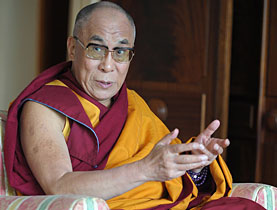
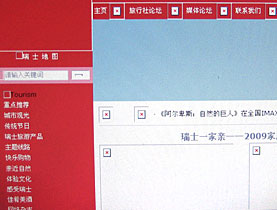
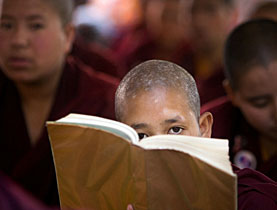
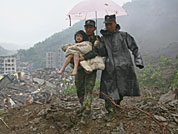

You can find an overview of ongoing debates with our journalists here. Please join us!
If you want to start a conversation about a topic raised in this article or want to report factual errors, email us at english@swissinfo.ch.